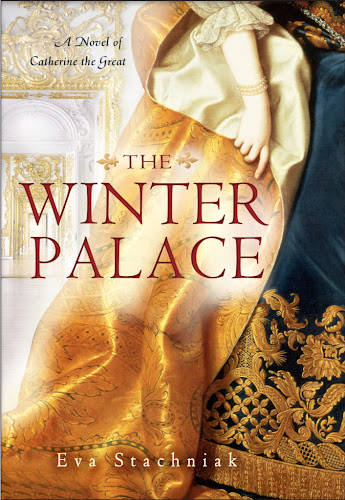This is as much Varvara's story as it is Catherine's and truth be told, Catherine is absent for portions of the novel and yet, that doesn't detract from the story. It's so well written and the characters are so well developed that the fictional plot lines are every bit as interesting as the historical ones and only add dimension to the story. However, for those disppointed that the focal point was not more centered on Catherine, the sequel Empress of the Night is told from Catherine's point of view.
From Varvara's point of view, Catherine seemed a little whiny and immature at times, though she would have been in her 20s by the time the scene I'm thinking of in particular would have occured. In fact, Catherine's character sort of regresses; in the beginning, she is shrewed and cautious but as the book goes on, she becomes reckless and immature. I think this was an attempt to show how unhappy she became in the situation she was in and how she reached a point when she just didn't care anymore about the things which she previously thought of the utmost importance.
For a spy novel, the politics sometimes take a back seat to the court gossip but I think it's important to remember that during this time period, court intrigue and politics were so often linked.
I was surprised to learn the author is Polish, because this is so well written in English, I can't believe that it's not the author's first language. It really brings the scenes to life and forms the characters so well, it was hard to put down and I look forward to the sequel.



No comments:
Post a Comment